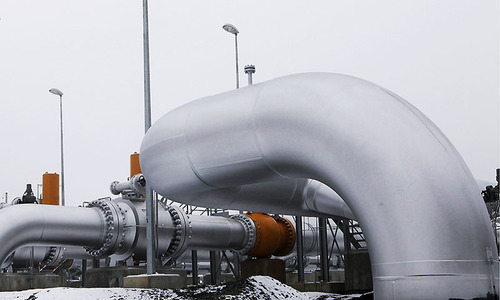ISLAMABAD: The first four months of the current fiscal year (4MFY22) posted a rise of more than 103 per cent in trade deficit driven largely by an almost double increase in the country’s imports compared to exports, the Ministry of Commerce (MoC) said on Monday.
The merchandise trade deficit reached $15.525 billion in July-October 2021 from $7.617bn over the corresponding months of last year.
The current year started with a rising import bill which poses a serious threat of causing pressure on the external side. The Ministry of Finance believes that increase in remittances, growth in export proceeds and Roshan Digital Accounts will help mitigate the pressure to a large extent.
The rising trend in the trade deficit was consecutively noted in the fourth month as merchandise trade deficit reached $3.775bn in October from $1.803bn over the corresponding month of last year.
Govt expects increase in remittances, growth in export proceeds
Initial estimates show rising import bill might push the current account to $10bn in the FY22.
Trade deficit had reached an all-time high of $37.7bn in FY18. However, government measures led to a drop to $31.8bn in FY19 and $23.183bn in FY20. The trend reversed and trade deficit was recorded at $30.796bn in FY21.
The trade gap has been widening since December last year, mainly led by exponential growth in imports and comparatively slow growth in exports.
Exponential growth in imports was blamed for the reverse trend seen in a fourth consecutive month.
The import bill in July-October 2021 rose by 64.5pc to $24.994bn against $15.193bn over the corresponding months of last year. In October 2021, the import bill edged up to $6.247bn from $3.907bn over the last year, reflecting an increase of 60pc.
According to the MoC, about 40pc of the increase in imports was investment-driven – capital goods, raw material and intermediates – which indicated expansion and enhanced activity in industry.
The remaining 60pc of imports comprise petroleum, coal & gas at 34pc, vaccines 11pc, food 8pc, consumer goods 2pc and all others 5pc. Most of this increase is inelastic in nature, the ministry further claimed.
In absolute terms, the net increase in total imports over this period is $9.801 billion. Of this, consumer goods are $239m, food $823m, capital goods $1.620bn, raw material and intermediates $2.209bn, petroleum, coal & gas $3.364bn, vaccines $1.068bn and all others $478m.
One of the major initiatives of the government to encourage imports of raw materials also pushed up the import bill. Oil prices have also increased substantially, which pushed up the import bill because of high demand for energy in the domestic market.
In the outgoing fiscal year (FY21), the import bill surged by 25.8pc to $56.091bn from $44.574bn the previous year.
Exports posted a growth year-on-year of 25pc to $9.468bn in July-October 2021 against $7.576bn over the corresponding months of last year. In October 2021, exports posted a growth of 17.5pc to $2.471bn against $2.104bn over the last year.
“This is the highest ever export in any October in our history,” Adviser on Commerce Razak Dawood said.
Published in Dawn, November 2nd, 2021
















































